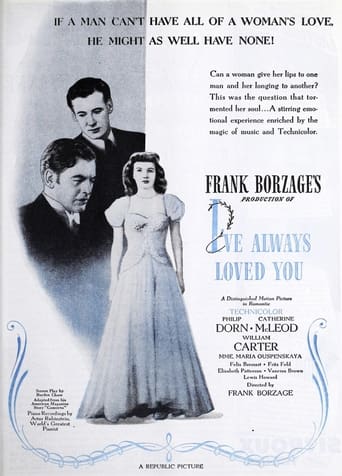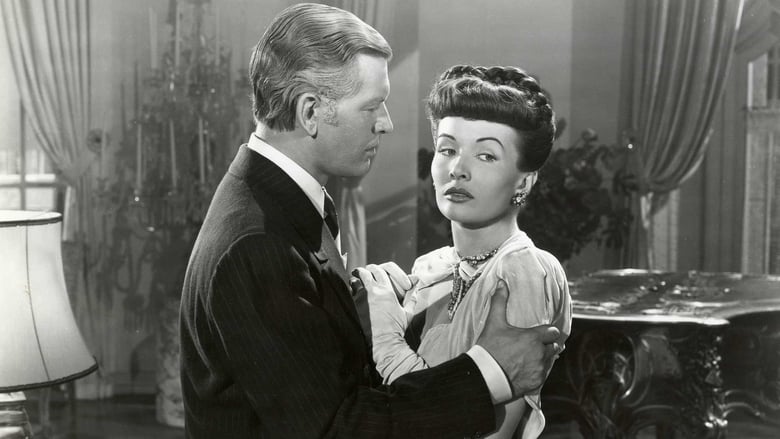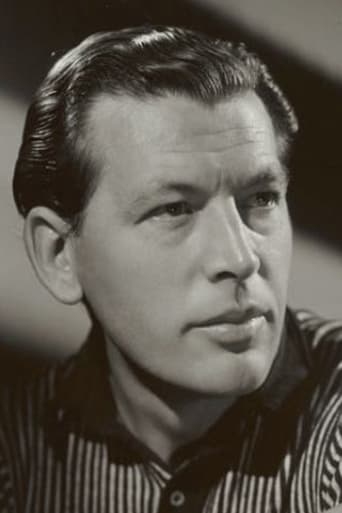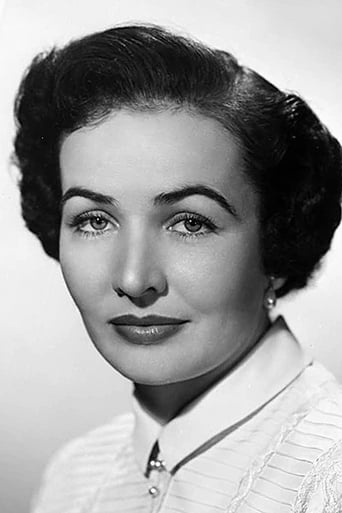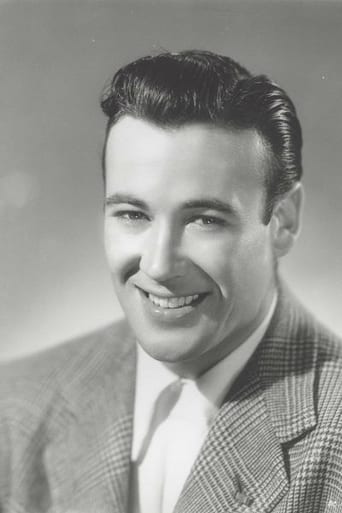I've Always Loved You (1946)
A beautiful young concert pianist is torn between her attraction to her arrogant but brilliant maestro and her love for a farm boy she left back home.
Watch Trailer
Cast


Reviews
It's a very good story, like an interesting experiment in musical psychology, delving into and trying to reach the very essence and nature of the extreme sensitivity of the musical sense, but the acting is a bit stiff, and the story, although tremendously good and interesting, doesn't quite come alive. Catherine McLeod saves the picture, her acting is wholly satisfactory and convincing all the way, but the others are at times a bit too wooden. Philip Dorn is more abominable than not as the utterly rude and indecent conductor who thinks he can go at any length in insulting Catherine in the name of music, and no wonder she abandons music on conditions like that. There are many details in this artificial set-up that just don't work, they are neither credible nor natural, but there is nothing wrong with the idea. Although Frank Borzage made several films of music, and they are all good, it's over-evident that he was no musician himself. On the whole, forget the flaws in the acting, the direction and the lack of musical realism but please follow and study the idea and the story, because the thoughts behind all this were humanly and psychologivally very interesting indeed.
A promising start doesn't transfer into a successful middle or end, leaving this romantic drama about a classical pianist as an interesting artistic disappointment. Catherine MacCleod, an innocent young pianist, like Ingrid Bergman in "Intermezzo", falls in love with her mentor, Philip Dorn. But unlike Leslie Howard in that 1939 classic, Dorn is not married, just a philanderer who treats MacCleod like a child and as any task master, work her too hard, often abusing her and when she shows him up in her Premier concert, accuses her of trying to overshadow him. In ascent, she's sort of a trilby to hit send golly, and not even his kindly Mother, Maria Ouspenskaya, can bring him down to earth.One of Republic studio's more ambitious endeavors, this was filmed in color and certainly looks lovely. The performances for the most part are sincere, although Ouspenskaya's constant slow delivery of lines often bothers me. Elizabeth Patterson adds a humorous touch of warmth to the role of MacLeod's landlady who owns the farm boarding house with her kindly father, Felix Bressart. Patterson's son, William Carter, falls in love with the young Catherine, and is obviously more worthy of her love than the egotistical Dorn. As directed by Frank Borzage, one of the great creators of classic melodramas, this is often very slow, plodding and sometimes even a bit too artistically over ambitious. There are many moments where thus feels like it is about to wrap up, but on it goes to another plot development which often changes its mood. While the first quarter is breezy and light hearted, the remainder bogs into pretentiousness which often makes it a bit of a bore. The music is of course lovely, but then again, so are lullabies.
...and I always will...Some say his post WW2 works were inferior to the thirties major works .Perhaps so.But it is no reason to dismiss them."I've always loved you" is unique,it defines music as a way of communicating emotions.Leopold and Myra use Rachmaninoff (mainly "Second" ),Beethoven ,Lizt and other musicians to express their admiration,their tenderness,their love,their jealousy,their pride,their lust for life,their hate,their contempt ,you name it.In the central scene ,where Myra plays the piano with Leopold's full symphonic orchestra is a real desperate fight ,probably the best concert scene ever filmed (with the eventual exception of Hitchcock's "the man who knew too much" (1956))And that scene is followed by another one where the two musicians ,although miles apart ,continue their "conversation" in a strange telepathy.The audience who knows Borzage's earlier works (such as "three comrades" "little man what now?" "mortal storm" "cargo" ...) might be disoriented while watching the beginning of the movie .But the master's touch is still here.Two elements are Borzagesque:the first is George's character.He is akin to Hans ("little man" ) and to the "three comrades" .He is the man who believes in true love ,the simple man who is like a bull in a china shop when he attends the first concert but whose heart is always in the right place.And the other one is Mme Maria Ouspenskaya (she is granted a "Mme" during the cast and credits!) who was the unforgettable mother of Martin (James Stewart) in Borzage's memorable "mortal storm" .Here she portrays Leopold's mother with authority.Her death is a great moment of delicacy when the music stops in her hand.Probably not as appealing as Borzage's earlier works,this film is yet waiting to be rediscovered.
This is director/producer Frank Borzage's most lavishly opulent sound film. It's a curio of a time long since past, when romanticism was celebrated and even the most wildly unrealistic moments seemed perfectly natural within their filmic contexts. Myra (the luminous and talented Catherine McLeod) is an aspiring concert pianist who comes to study under the imperious maestro Goronov (Philip Dorn), who was an admirer of her father (Felix Bressart) many years ago when the father was a professional pianist in Europe. But the father has since retired to rural America after meeting Myra's mother and forsaking his career for her 20 years earlier. (The mother has since died, and Myra's "maternal guidance" in the film is provided by the dimunitive powerhouse Maria Ouspenskaya, here playing Goronoff's mother and "the woman behind the great man.") As Myra is molded by Goronoff (who doesn't hold women in any high regard at all and goes through them like he would pairs of underwear, but who does respect talent) into a superior pianist, Myra falls in love with her Svengali. But Goronoff refuses to admit how much Myra has come to mean to him, and when her father dies, the grief-stricken Myra must choose between the man she has loved unrequitedly and a local farmer, George (Bill Carter) who has loved her all her life. Which one will she choose?This is a classic woman's-film dilemma, and the characters in it are more mythical "types" than the flesh-and-blood, warts-and-all characters we would expect to see today. But that's not a problem for Borzage, whose intensly romantic, lushly envisioned films have always put love on the highest pedestal. What brings this film truly to life is the nuanced, deeply felt performances by all involved. Even the seemingly serene, uncomplicated George comes to life when declaring his hidden love for Myra. No matter how surreal the story may seem (especially if you're not used to seeing and enjoying classic cinema melodramas), the actors' and the director's commitment to it is absolute, giving the film an interior life and intensity that have made it a cult favorite and guilty pleasure, especially for Borzage fans. The classic Borzage theme: that metaphysical love can (and should) conquer all is ever present, as are the typical Borzagian dichotomies (e.g., between artist and simple country folk, passionate love and companionate love, men and women, and country versus city, etc.)Borzage had just signed a multipicture deal with the fledgling Republic studios in 1945 when production began, and it's clear the studio spared no expense with their Academy-Award winning director. Lavishly photographed in Technicolor with colossal classical sets, exquisite costumes, and extensive piano doubling by Artur Rubinstein, I'VE ALWAYS LOVED YOU will definitely appeal to classical music lovers familiar with the backbiting world of professional music. All others need to watch not only with an open mind, but with an open heart.Despite the somewhat contrived ending, I'VE ALWAYS LOVED YOU is worth seeing as one of Borzage's peniultimate films, and one he was able to make his most lushly romantic. To this day, few directors can boast such an incredible command of both the visual and emotional elements of almost every film (with the possible exception of Douglas Sirk). As Rainer Fassbinder once said of Douglas Sirk, you can tell from his films that he (Sirk) "really loves people, and doesn't depise them, as we do." The same could be said of Borzage--one of the cinema's first, last, and greatest romantics.Kudos also go to the UCLA Archives for a superb Technicolor restoration. This VHS is definitely the version to watch. Beware of old black and white TV prints..

